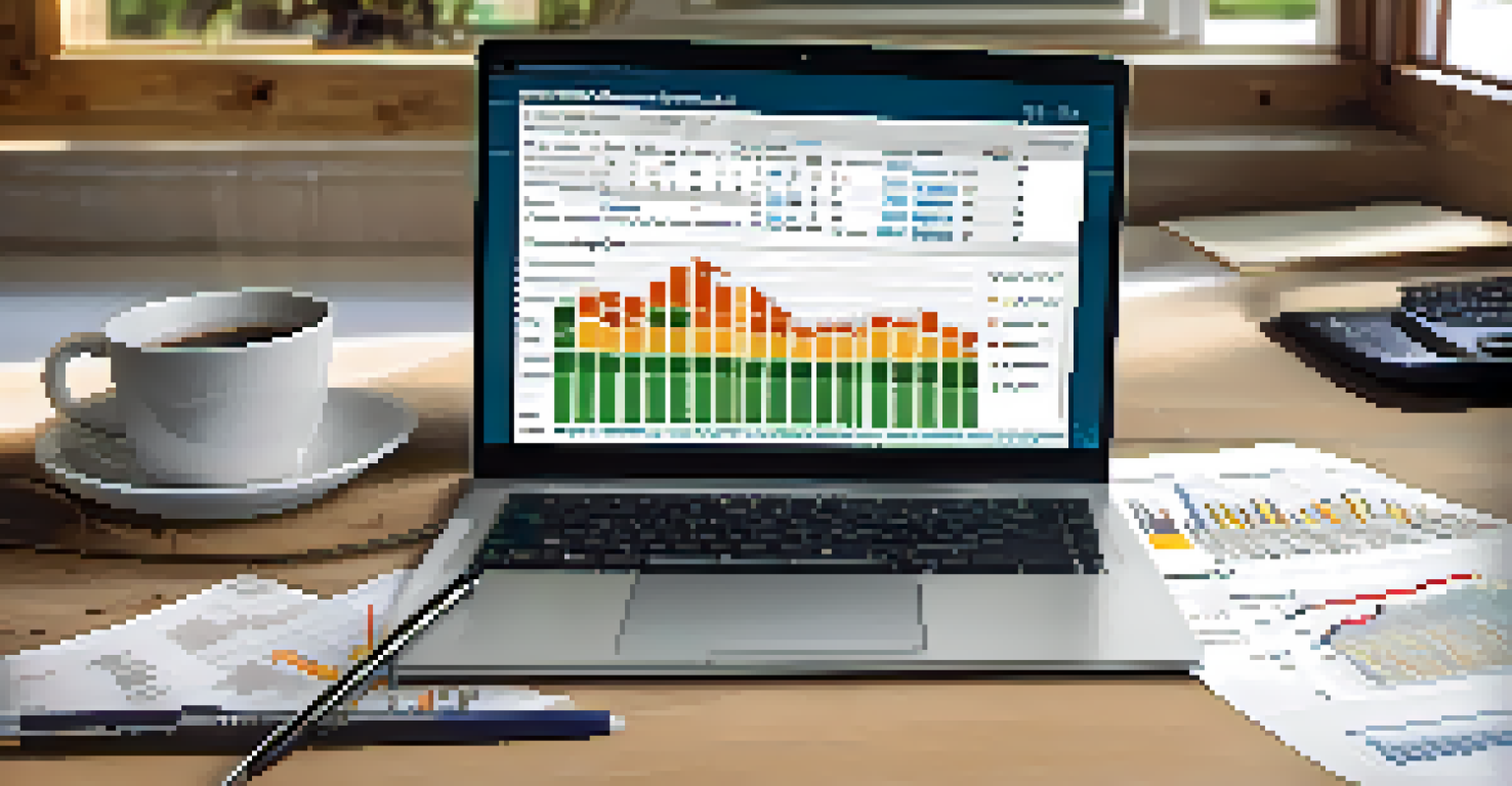Evaluating Your Home’s Value for Insurance Coverage

Understanding Home Value and Insurance Coverage Basics
Home value refers to the worth of your property, which is crucial for insurance coverage. It's not just about what you paid; factors like location, size, and condition play a significant role. Insurers often use this value to determine how much coverage you need for your home and belongings.
The best time to plant a tree was twenty years ago. The second best time is now.
When evaluating your home’s value, consider both the market value and the replacement cost. Market value is what your home could sell for today, while replacement cost is what it would take to rebuild it from scratch. Understanding these distinctions helps you avoid being underinsured or overpaying on your premiums.
Ultimately, having the right insurance coverage based on your home’s value ensures that you're protected financially in case of disasters. This is especially important in times of fluctuating real estate markets, where values can shift significantly.
The Importance of Home Appraisals for Insurance
A professional home appraisal is a key step in accurately determining your home’s value. During this process, an appraiser will evaluate various aspects of your home, including its age, condition, and any renovations you've made. This objective assessment can provide you—and your insurer—with a clear understanding of your home's worth.

While some homeowners may opt for online valuation tools, these often lack the accuracy of a professional appraisal. Factors like neighborhood trends or unique property features can greatly influence value, and appraisers consider these nuances. Therefore, relying solely on digital tools might lead to underinsurance.
Understanding Home Value Basics
Home value is determined by factors like location and condition, which are essential for adequate insurance coverage.
In many cases, your mortgage lender will require a formal appraisal during the loan process. However, it's wise to periodically get appraisals, especially if you've made significant changes to your property or if the real estate market has fluctuated.
Assessing Your Home’s Features and Improvements
To evaluate your home's value, take a close look at its features and any improvements you've made. Renovations like a new roof, updated kitchen, or energy-efficient windows can significantly increase your home’s worth. Documenting these upgrades is essential for discussions with your insurer.
An ounce of prevention is worth a pound of cure.
Consider creating a list of features that contribute to your home’s value, such as square footage, number of bedrooms, and outdoor space. These elements are often used in insurance calculations and can help you make a compelling case for adequate coverage. Don't forget to note any recent upgrades, as they can influence your policy.
Remember, insurance policies often account for additional living expenses if you need to temporarily relocate due to repairs. By accurately assessing your home’s features, you ensure that your coverage reflects your living situation and future needs.
Comparative Market Analysis: A Useful Tool
A Comparative Market Analysis (CMA) is an invaluable tool for understanding how your home stacks up against similar properties. Real estate agents often perform CMAs to help clients set a competitive selling price. This analysis can also provide insight into the current market trends impacting your home’s value.
To conduct a CMA, you'll want to look at recently sold homes in your neighborhood that are similar in size and features. This gives you a benchmark for what buyers are willing to pay. The more data you have, the better you can gauge your home's worth and discuss it with your insurance provider.
Importance of Home Appraisals
Professional appraisals provide an accurate assessment of your home’s value, ensuring proper insurance coverage.
Using a CMA can help ensure that your home is adequately insured. If the market shows a significant increase in home prices, you might find that your coverage needs to be adjusted accordingly.
Keeping Track of Changes Over Time
Your home’s value isn’t static; it can change due to various factors over time. Regularly updating your insurance policy to reflect any changes in your home's value is crucial. This includes renovations, market fluctuations, and even shifts in the neighborhood that may enhance or detract from your property’s worth.
To effectively keep track of changes, maintain thorough records of all improvements and repairs. This documentation not only helps you during the insurance evaluation process but also boosts your home’s resale value. Having a detailed history of your property can be a selling point when it comes time to list your home.
Setting reminders to review your insurance policy and home value annually can ensure you remain adequately covered. This proactive approach can save you from financial headaches down the road.
The Role of Location in Home Valuation
Location is one of the most significant factors influencing your home’s value. Properties in desirable neighborhoods or areas with good schools tend to have higher valuations. This is important to consider when discussing your home’s insurance coverage, as location can impact both replacement costs and risk assessments.
When evaluating your home, think about nearby amenities, crime rates, and overall neighborhood appeal. These elements are not just relevant to potential buyers; they also factor into insurance premiums. A home in a high-risk area may cost more to insure, so it's essential to communicate this with your insurer.
Regularly Update Your Insurance
Periodic reviews of your insurance policy are crucial to reflect changes in your home’s value and avoid being underinsured.
Ultimately, understanding how location affects your home’s value can help you make informed decisions about your insurance needs. If you live in an area prone to natural disasters, for example, your insurance coverage may require additional considerations.
Regularly Updating Your Insurance Coverage
After evaluating your home’s value, it’s essential to regularly update your insurance coverage. Life events, such as renovations or purchasing new valuables, can change your coverage needs. Failing to update your policy may leave you underinsured, which can be financially devastating in the event of a loss.
It's a good idea to review your policy at least once a year to ensure it aligns with your current home value and personal circumstances. This review not only protects your investment but also helps you adjust your premiums if necessary, potentially saving you money in the long run.

Remember, insurance isn’t a set-it-and-forget-it deal. By staying proactive and informed, you’ll ensure that your home and belongings are adequately protected.